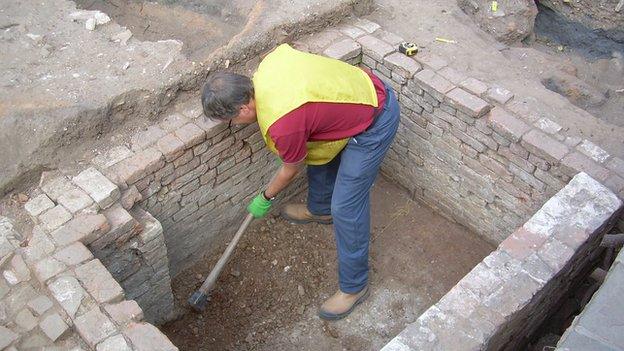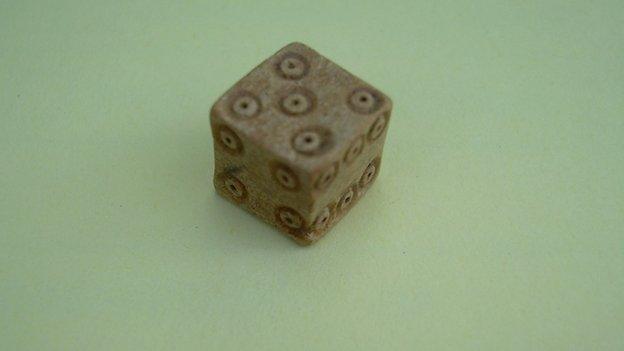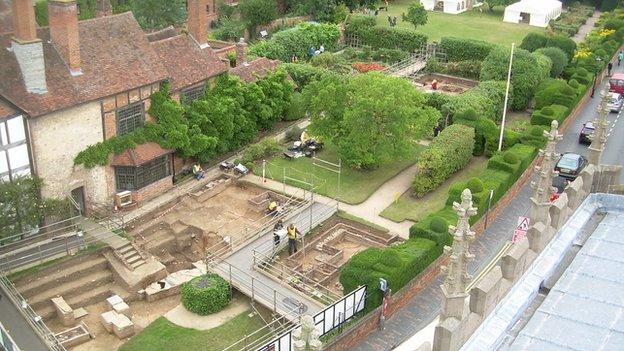Shakespeare's last house: Archaeologists reveal more
- Published

The team has now been able to identify the outline of Shakespeare's last home and the activities that went on in each room

Artefacts that may date from the Bard's time were found during the dig
Archaeologists have discovered "as much as they can" about the house where William Shakespeare spent his final years, the project leader says.
New Place in Stratford-upon-Avon, where the playwright lived until his death, was demolished in the 18th Century.
Experts working on the site since 2009 have identified features including kitchens and a brew house.
The Shakespeare Birthplace Trust said it was still consulting on when the finds would be put on display.
Kevin Colls, of Staffordshire University, managed the project and said he hoped visitors would be able to see the discoveries.
Mr Colls said: "We have identified as much as we can in terms of what the house looked like and where it stood on the site.
"The site itself has a long and drawn-out history. New Place was built in 1483 and Shakespeare bought it in 1597. The house was demolished in the 18th Century and a new house was built there.
"What we found were the jumbled remains of two houses, with some dating from the 18th Century house and some belonging to Shakespeare's house. But we now have a pretty good idea of what's what.
"We have identified pretty accurately the footprint of Shakespeare's New Place and can say what kind of activities would have gone on in the rooms, such as the brew house, which ran down the side of the house, and the kitchens."

The birthplace trust is consulting over how the public can access the site
andplatforms(3222,3224).jpg)
The trust says it plans a 'major project' to coincide with the 400th anniversary of Shakespeare's death
He said the Shakespeare Birthplace Trust, which owns the site and commissioned the dig, was considering plans to allow members of the public to access the site, on Chapel Street, such as a walkway that followed the outline of the rooms.
He said he was now managing the second phase of the project, in which archaeologists would conduct technical analysis of the finds, some of which may date back to Shakespeare's time.
A spokesperson for the birthplace trust, said it was planning a "major project" for the site in 2016, the 400th anniversary of Shakespeare's death.
"At this very early stage we are consulting widely and hope to announce more details next year," he said.
This article was amended on 23 December after it emerged the original introduction was incorrect.
- Published11 July 2013
- Published7 March 2013
- Published11 April 2011